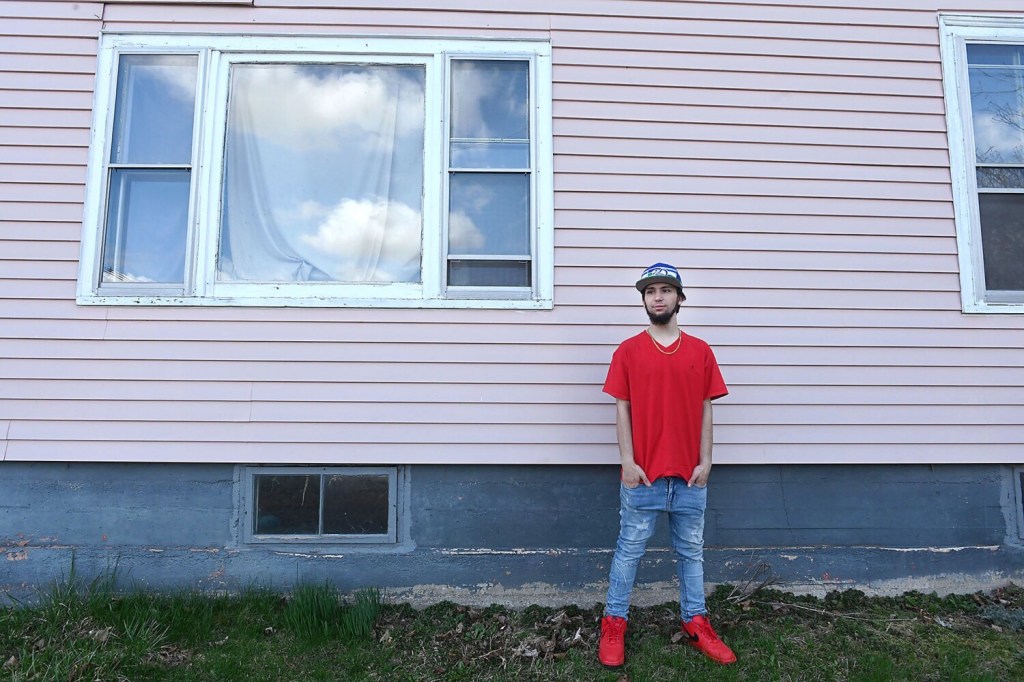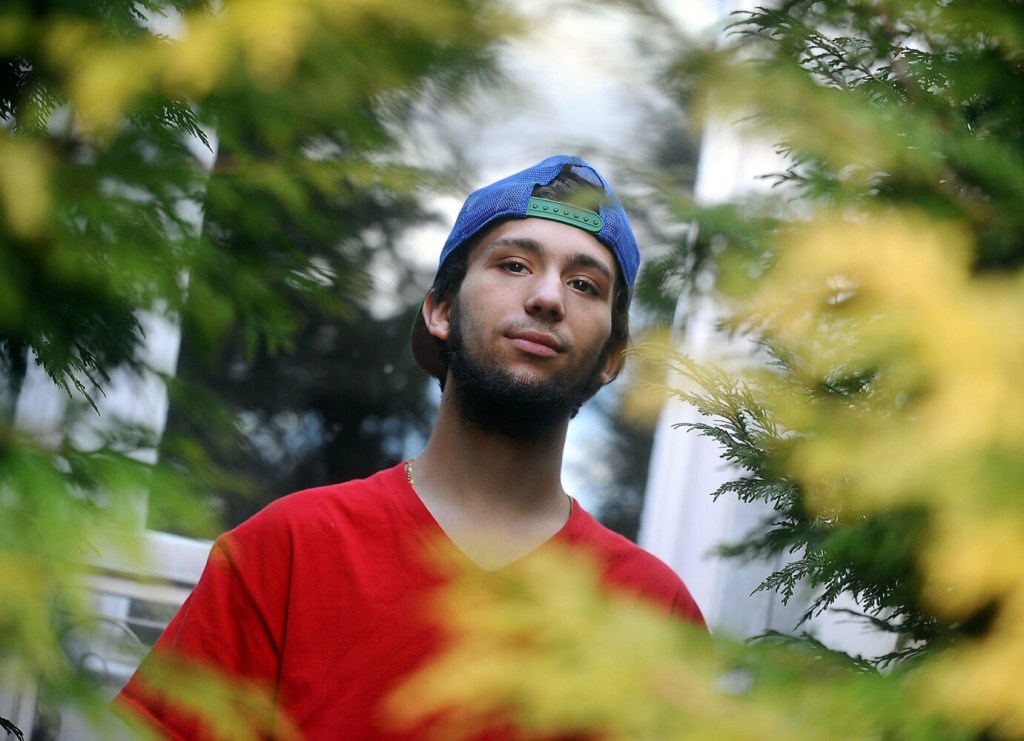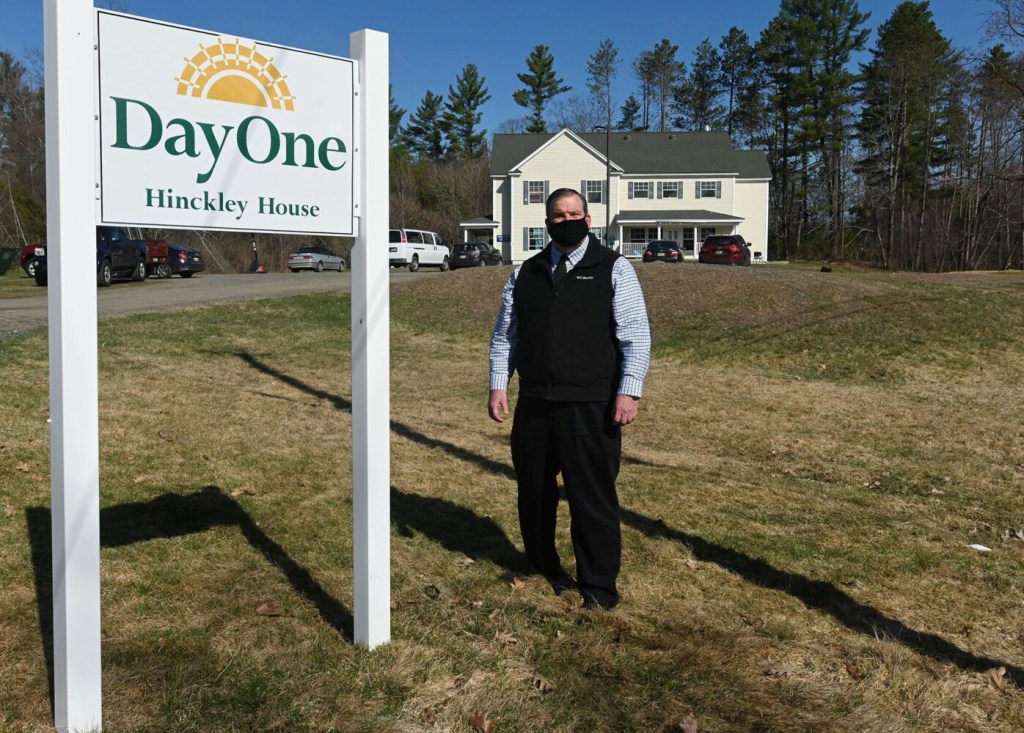Day One, a nonprofit agency focused on youth and family treatment for substance use and mental health, is closing its location in Hinckley because of a shortage of qualified staff, but the agency is determined to continue to provide care for Maine youth.

“I feel like the decision to move the Hinckley operation is disappointing in the sense that we’re going to have to suspend our services while we make this transition,” said Greg Bowers, CEO of Day One. “However, I really do think it creates an opportunity to not just look at our residential program, but to look at how that program fits in the grander scheme of how we’re delivering care to the youth and families.”
The Hinckley location will close Wednesday, April 14, and services will be suspended until the new location is reopened. Bowers said the plan is to reopen somewhere closer to Day One’s other resources farther south, although the specifics of the new location have not been announced.

Damien Larochelle, 17, of Hermon has returned home after spending a year dealing with substance abuse and recovery. Larochelle spoke from his home Friday after he completed a six month residential program with Day One Hinckley House in Hinckley. Rich Abrahamson/Morning Sentinel Buy this Photo
The staffing shortage that led to the closure is not unique to Day One, Bowers said, but because the facility is so far from the nonprofit’s other locations, it has been particularly difficult to manage.
Day One offers a variety of services to people across Maine, including medication management, outpatient counseling, services to youth experiencing homelessness, and residential programs like the one at Hinckley. The agency also provides services to youths at Long Creek Youth Development Center. It serves over one thousand people annually and focuses on providing holistic care.
Last October, Day One merged with another organization, Smart Child and Family Services, which focused on youth but also treated adults.
“We brought those agencies together realizing that when you’re dealing with addiction in young people, you quickly realize that it’s a multi-generational issue — so there’s a lot of family work that goes on with it, there’s a lot of trauma associated with it,” Bowers said. “Bringing the two agencies together brought capabilities that could better address those broader needs.”
Damien Larochelle, 17, graduated from the residential program at the Hinckley center Tuesday and spoke highly of Day One.
“It’s been a lifeline for a lot of kids,” Larochelle said. “It was great there. We got to go out and do stuff, and Day One helped us build up structure for when we get out so we don’t go back to doing whatever we were doing.”

Damien Larochelle, 17, of Hermon has returned home after spending a year dealing with substance abuse and recovery. Larochelle, pictured at this home in Hermon, completed a six month residential program with Day One Hinckley House in Hinckley. Rich Abrahamson/Morning Sentinel Buy this Photo
Larochelle came to Day One after struggling with substance use and spending time at Long Creek Youth Development Center. He realized that he was hurting the people in his life and wanted to make a change.
“I wanted to get out of Long Creek because I’ve been there so many times and it’s just not the place for me,” Larochelle said. “I knew it was time to get my life together because I was hurting the relationships I love. I was stealing from people. I was doing a bunch of stuff that I normally wouldn’t do.”
Day One helped him with life skills, Larochelle said, and he appreciated that the kids had more freedom than in other youth rehab programs. They could go out into the community with staff members, and he had good relationships with a lot of the staff.
Now that he has completed the program, he is living in Hermon with his grandfather and is looking forward to an upcoming job interview. Before Day One, he said, he never would have imagined that this would be in his future.
“They’ve given me all the skills I need and set me up for a whole new life,” Larochelle said.

Day One CEO Greg Bowers at Day One’s Hinckley House in Hinckley on Friday. The organization is closing the Hinckley location on Wednesday. Rich Abrahamson/Morning Sentinel Buy this Photo
The residential program at the Hinckley location is a six-month program for boys who are usually between 14 and 18 years old, and is one of the more intensive programs that Day One offers. There is an equivalent program for girls in New Gloucester. Because of the length of the program, Day One partnered with a school district to have local teachers educate the students at the program, although the teachers still work for the district, not as Day One employees.
The pandemic has created an even greater need for the services that Day One offers.
“You have huge shifts in the environment. You have COVID-19 and the pandemic, which has isolated kids, isolated families, and has really created a mental health and substance use crisis, and that’s becoming more and more evident,” Bowers said.
The residential services such as those offered at Hinckley are closely aligned with the juvenile justice system, Bowers said. As that system sees reform, it’s important to reevaluate the care that Day One offers.
To Day One, a large part of that is finding ways to keep kids in their communities and provide care to them in that environment. And when it comes to reimagining care, it has to include things such as housing, education and job opportunities.
“The evidence is clear that outcomes are better when you’re treating youth that are with their families and their home communities,” Bowers said. “And I think that the reform that’s going on is really necessary and really positive. Kids shouldn’t be treated at institutions. And institutions shouldn’t be used as an alternative to care when that care doesn’t exist in the community, and that’s often the case or has been the case historically.”
Send questions/comments to the editors.







Comments are no longer available on this story